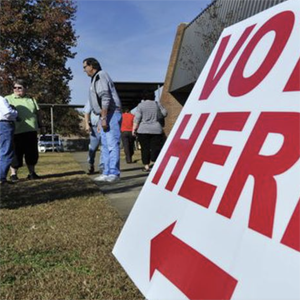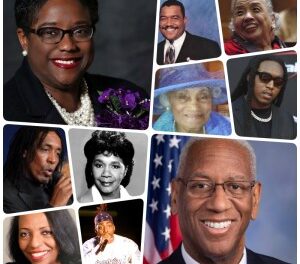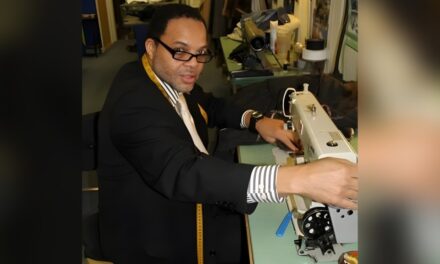By John Sharp, The Associated Press
Republicans continued their dominance in Alabama by squashing any surprises and swamping Democrats in competitive contests in two of the state’s largest counties.
Mobile and Madison counties standout because they trail only Jefferson County — the state’s largest Democratic stronghold – in population size. But neither county has a Democrat in charge of a countywide office, and Tuesday’s election results suggest that Republicans have little reason to sweat.
Both counties have flirted with shades of blue before – they were instrumental in electing Democrat Doug Jones to the Senate five years ago. But neither are considered anything but Republican, according to political observers who view that flipping one or both of the largest counties in Alabama is necessary if the Democratic Party envisions a competitive political environment in a state where Republicans control all constitutional offices and hold a legislative supermajority.
“It would be incumbent on Democrats to mobilize young people and to mobilize those parts of the electorate who will vote for them and to re-energize their ability to recruit candidates and to socialize people to vote for their party,” said Alex Aguado, chairman of the Department of Politics, Justice, Law and Philosophy at the University of North Alabama. “Right now, they are just anemic in their ability to do that.”
He added, “I would just argue that Democrats are dispirited in this state.”
Discouraged Democrats
Indeed, that dispirited mood can be seen in the voter turnout and straight-party voting in Mobile and Madison counties. Of those who voted straight-party in Mobile County, 61.7% went with Republicans and 37.7% with Democrats. In Madison County, 63.8% of straight-ticket voters went with Republicans, while 35.3% were Democratic.
The results are a clear indication that the brief flirtation Mobile and Madison counties had as a shade of blue is history. Jones’s razor-thin victory during the 2017 special election over Republican Roy Moore was buoyed by a 17-percentage point victory in Madison County, and a 14-percentage point win in Mobile County.
Turnout, during last week’s midterm election, was a factor. According to probate records, turnout was far greater in the Republican precincts in both counties during Tuesday’s primary.
For Mobile County, only two of its 25 precincts that recorded more straight-party Democratic votes than Republican straight-party votes had a turnout above the county average of 34.7%.
In Madison County, where turnout averaged 39%, the top 12 precincts with turnouts of 47% or greater were all dominated by straight-party Republican votes. Precincts with turnouts below 20% were almost all Democratic.
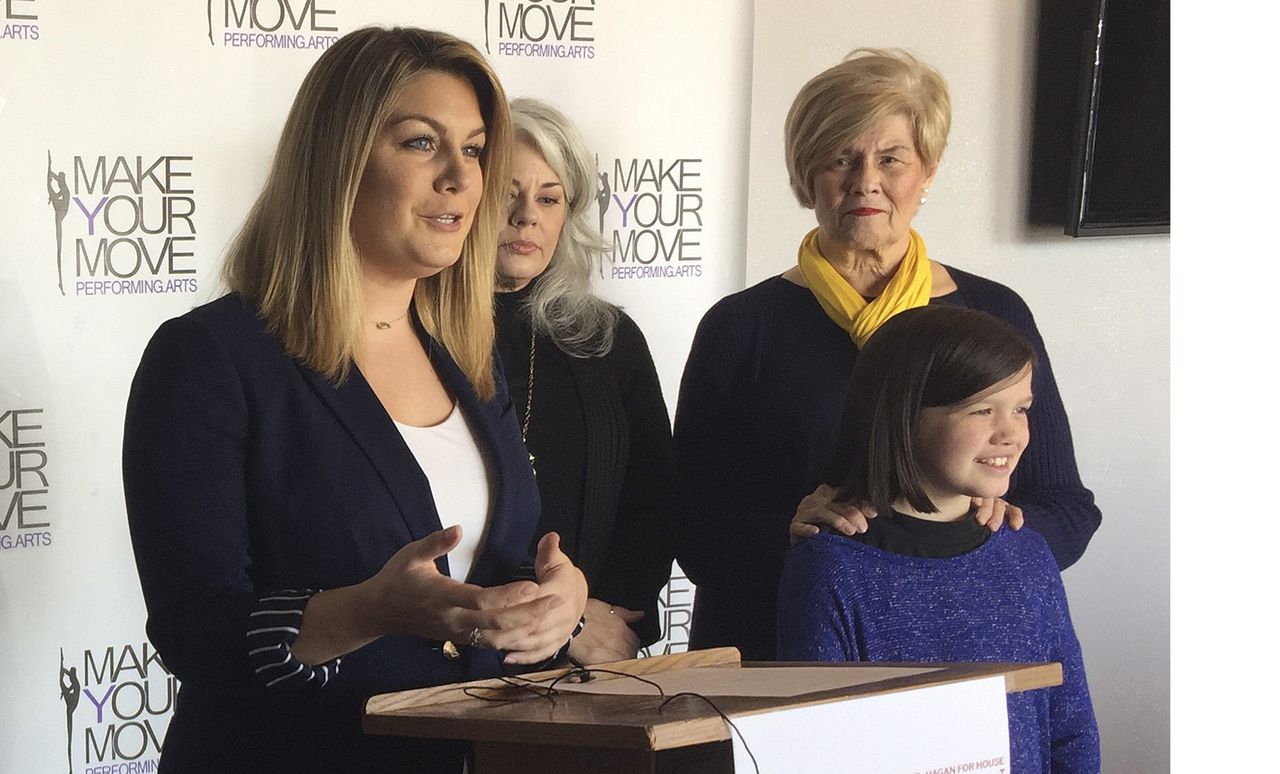
“It came down to voter turnout,” said Kimberly Lewis, the Democratic challenger to Republican State Senator Tom Butler, R-Madison, who lost by 11 percentage points in the Senate District 2 race that was considered one of three contests in North Alabama that could be competitive prior to Tuesday’s midterm. All three were won by Republicans.
“I’m not sure what we could have done as candidates to make people motivated to get them to come out to vote,” said Lewis.
The two other contest Democrats had hoped to challenge were State House District 25, the seat of retiring Alabama House Speaker Mac McCutcheon; and State House District 10 that was opened with the retirement of Republican State Rep. Mike Ball.
Both of those House districts, however, have a voting-age population that bodes well for Republicans: They are each represented by over 60% of white voters who, in Alabama, tend to favor GOP candidates.
Mallory Hagan, a former Miss America from Opelika, lost out to Republican Phillip Rigsby in House District 25 by 16 percentage points. Republican David Cole defeated Democratic challenger Marilyn Lands by nearly 7 percentage points in the District 10 contest.
“I do not believe Alabama is a deep red state,” said Hagan. “I do believe that Democratic voters have potentially become discouraged. I think that this election was a combination of factors and one of them being discouragement.”
Straight-ticket views
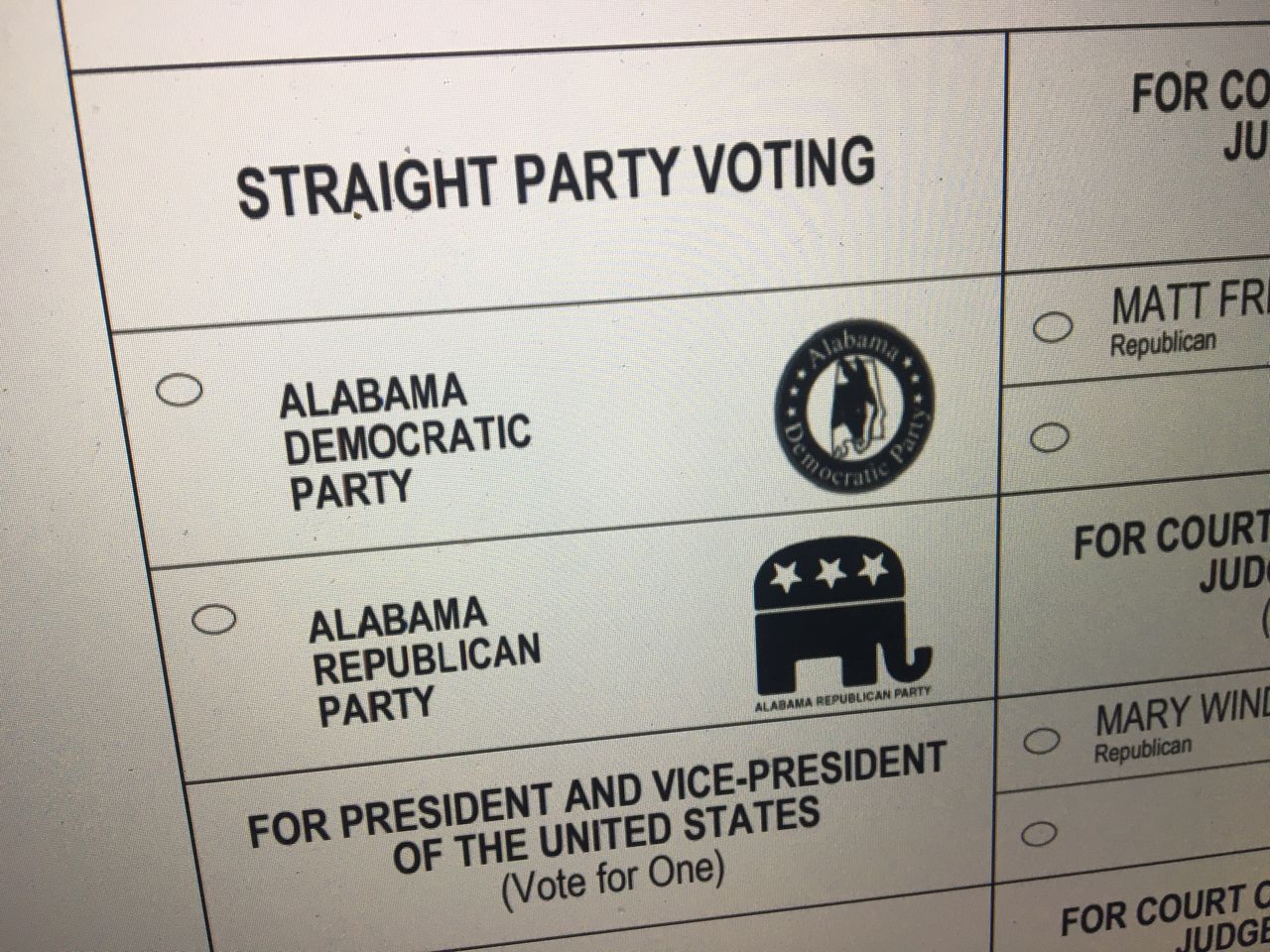
Hagan and Lewis both said they felt straight-ticket voting was problematic. Hagan said she felt it encourages a “lack of education on who is running on either side of the ticket.” Lewis said straight-ticket voting does not give voters time to get to know candidates, but only to align with a partisan affiliation.
Alabama is one of only six states with straight-ticket voting, and it remains a popular option for the state’s voters. Of the 1.4 million votes cast on Tuesday, 67% were straight ticket. Republicans benefited the most, with 45.6% of the overall ballots cast a straight ticket for the GOP. Only 21% were for Democrats.
But there is little momentum for reform, even among Democratic politicians. Alabama State Democratic Party Chairman Randy Kelley told AL.com recently that he supports straight-ticket voting, and a number of Mobile County Democratic lawmakers are also support it.
“The Democrats didn’t start it, but I think it works,” said state Rep. Barbara Drummond, D-Mobile, who ran unopposed. “Everywhere I went, those (constitutional) amendments were causing people not to vote at all. When you set up a ballot that is as confusing as it was … people were saying, ‘I won’t fool with this.’”
Drummond said the straight-ticket option was important in getting state Senator Vivian Figures, D-Mobile, re-elected, over Republican challenger Pete Riehm.

Figures agreed, saying that straight-ticket voting helps voters to avoid the confusion as they move down a lengthy ballot.
Figures easily defeated Riehm by nearly 39 percentage points in a Senate district that is 61% Black and considered a safe Democratic seat.
But turnout in some of the precincts that overwhelmingly backed Figures were, in many cases, below 30 percent and continued a trend in the City of Mobile of low voter turnout during state and local elections.
Figures, who was accused by Riehm of not being present in her district, vowed last week to follow through with a campaign promise of establishing a think tank within Senate District 33 that is aimed at educating residents about government.
“I want to show how relevant elected officials are to their daily lives,” Figures said, adding that taking a deeper dive into the pros and cons of straight-party voting could be among the issues discussed. “Many people may not see how the dots are connected. Once they see how the dots connect, they will see the relevance of their voting and how important that one vote is.”
She added, “it would be more competitive (in Alabama) if people showed up to the polls.”
Mobile’s ‘red trend’

The Democratic Party’s only win in Mobile County on Tuesday was salvaging Figures’ seat. The party lost overwhelmingly in countywide races for District Attorney and Sheriff.
Mobile County Democratic Party Chairman Ben Harris said for the party to compete in a county that has majority white outside Mobile’s city limits, it will have to outreach to white progressive voters within the county.
“We think the city, itself, is a strong Democratic city and will continue to be,” he said. “We need to focus on the county.”
Harris said the party is eying the Mobile city mayoral race in 2025, when incumbent Mayor Sandy Stimpson – a Republican – is expected to retire and leave behind an open seat.
“We certainly believe that we will elect a strong mayor in the future, and hopefully in the very near future,” Harris said. “That’s part of what we’ll build this party around.”
Mobile County has the potential of becoming a battleground. According to Republican Probate Judge Don Davis, he believes the county has a partisan split of around 40-45% Republican and 40-45% Democrats, with the balance as independent voters who “all things being equal, vote conservative.”
Thomas Shaw, a political science professor at the University of South Alabama, said he does not see Mobile County changing anytime soon. While Mobile is a majority-minority community, the county consists of only 36.6% Black residents. There are also about three times as many veterans in Mobile County (28,259) as there are in the city (11,937), he added.
“You have many fewer minorities in the county depressing the Democratic vote and far more whites, veterans and slightly less educated which are all groups that have been shown to consistently vote more Republican than Democrat,” Shaw said. “My sense is that it is generally more whites choosing to move outside the city and into the county which will likely continue to reinforce the county’s red trend.”
Madison: ‘Competitive’ county
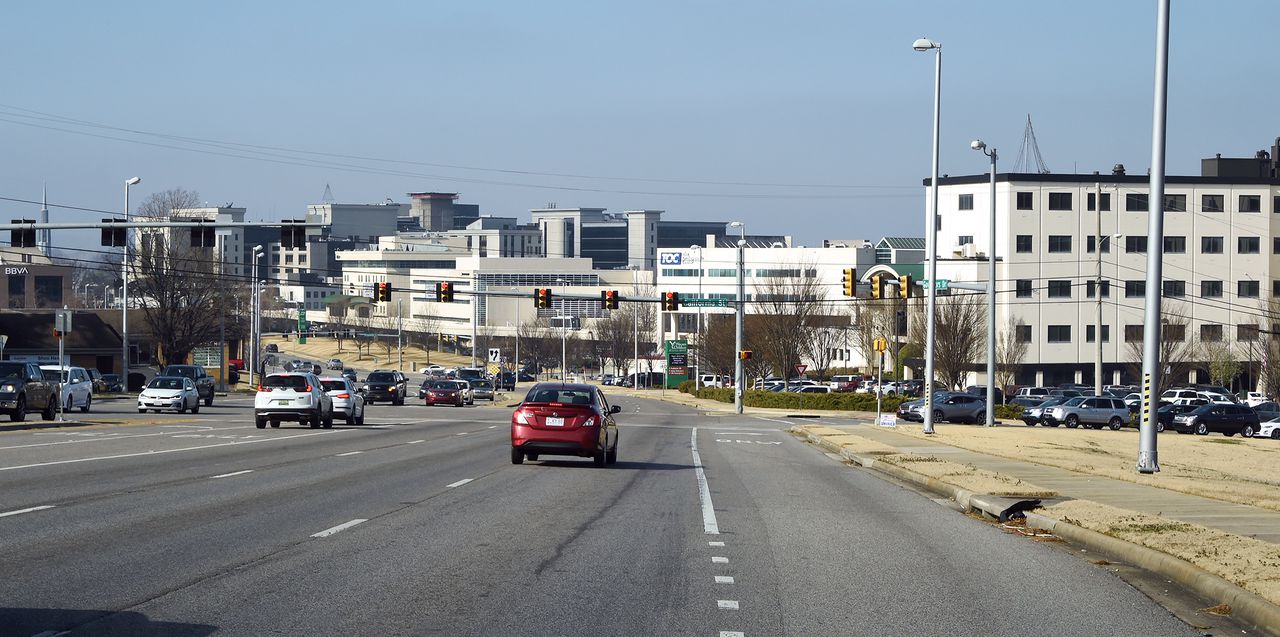
In Madison County, there remains hope among Democrats that a fast-growing Huntsville and a transient population – estimates suggest that half of the population are not Madison County natives – will tilt the state’s third largest county into more of a political swing status.
“If you are going to see a purple tinge, if you will, it will be in Madison and Limestone counties and the Huntsville area,” said Steve Flowers, a political commentator, and a former Republican member of the Alabama House. “I don’t see Mobile being in the same type of growth as Huntsville. There is not the migration from California, North Carolina, and New York into Mobile and Baldwin counties like you see in Huntsville. The growth and industry are just a different animal.”
Jess Brown, a retired political science professor at Athens State University and a longtime observer of Alabama state politics, said while Madison County remains very much Republican, it’s not as strong GOP as it was three election cycles ago.
That said, he believes the demographic realities make flipping Madison County difficult. According to U.S. Census figures, the county is nearly 69% white, and 24.5% Black, making it much less diverse than Mobile County.
“If you simply look at the demographics of the electorate of Madison County, I would fully expect Madison County to remain Republican-leaning and not becoming a blue county like Jefferson or Montgomery,” he said. “But you will see it evolve into a more competitive county.”
Brown, with a caveat, added, “This assumes that Democrats have got to find a way more effective candidate recruitment (strategy) and they have got to find a way to make money for their candidates.”
Lewis, the Democratic candidate in Senate District 2, said that money issues aside, Democrats will continue to have problems in the state legislative contests as long as Republicans are in charge with redrawing the district boundaries every 10 years.
“When you have Republicans controlling the House and the Senate, they will make decisions on what is happening and the lines will be drawn for them,” she said. “You just don’t have a chance in some cases.”
Waymon Burke, a political science professor at Calhoun Community College, said the problems with the Democratic Party overall in Alabama will continue to be an issue for Madison County’s Democratic candidates who hope to upend Republicans in future elections.

He said the lack of fundraising and effective organization on the state level hurts the county party. On the other hand, he said Republicans in Madison County appear to be more organized and engaged.
“The Republican’s men’s club, for example, is just a huge organization,” Burke said. “It’s well organized. I will get phone calls for months reminding me of the meetings.”
He added, “I think a lot of people who have identified with the Democratic Party have been disenchanted with the leadership in recent years. They are less actively involved.”

